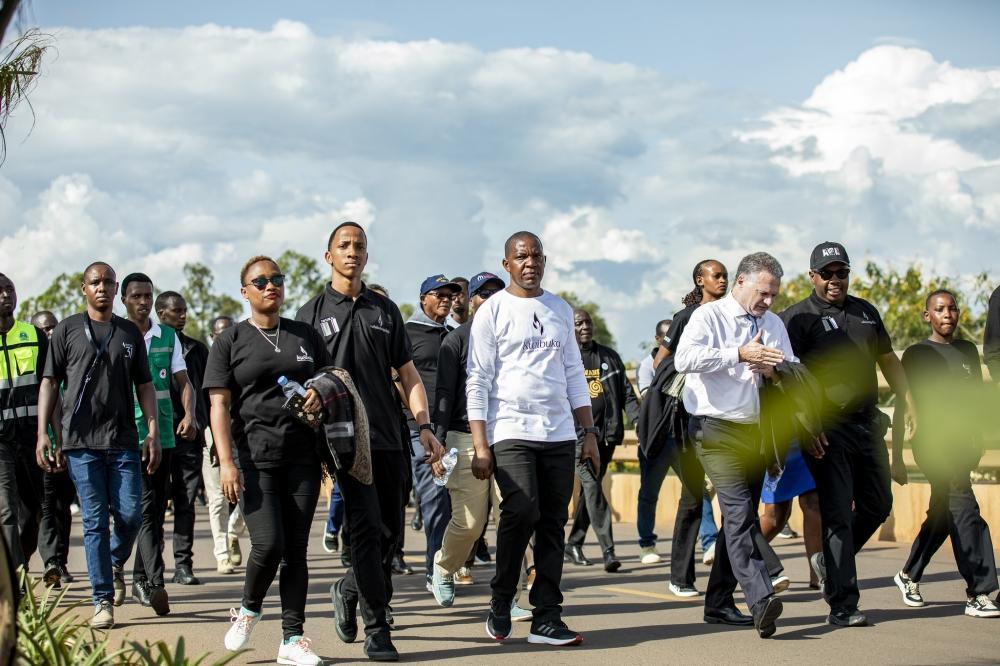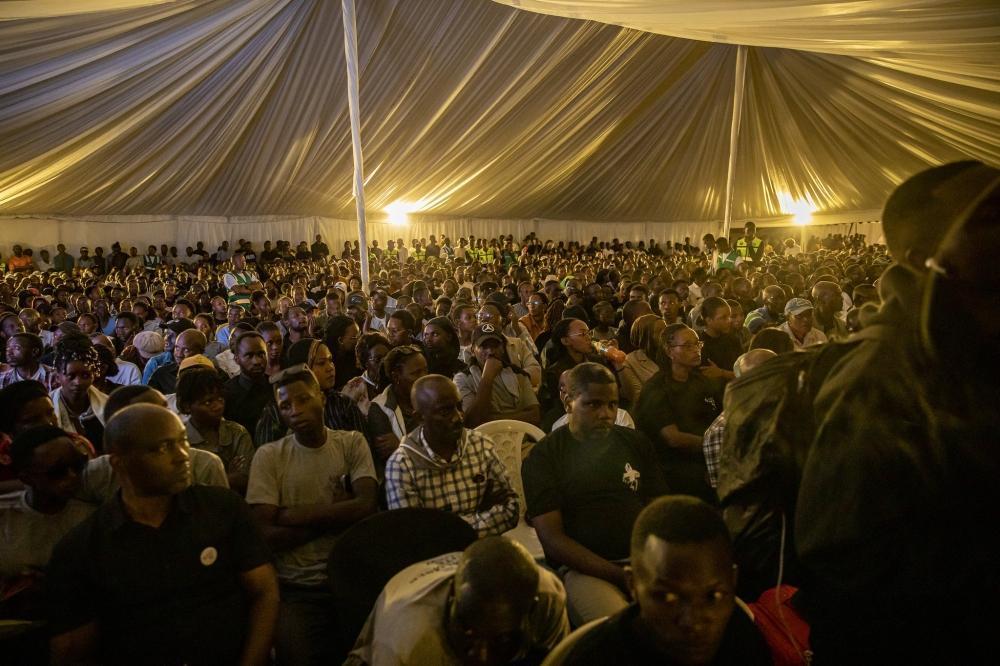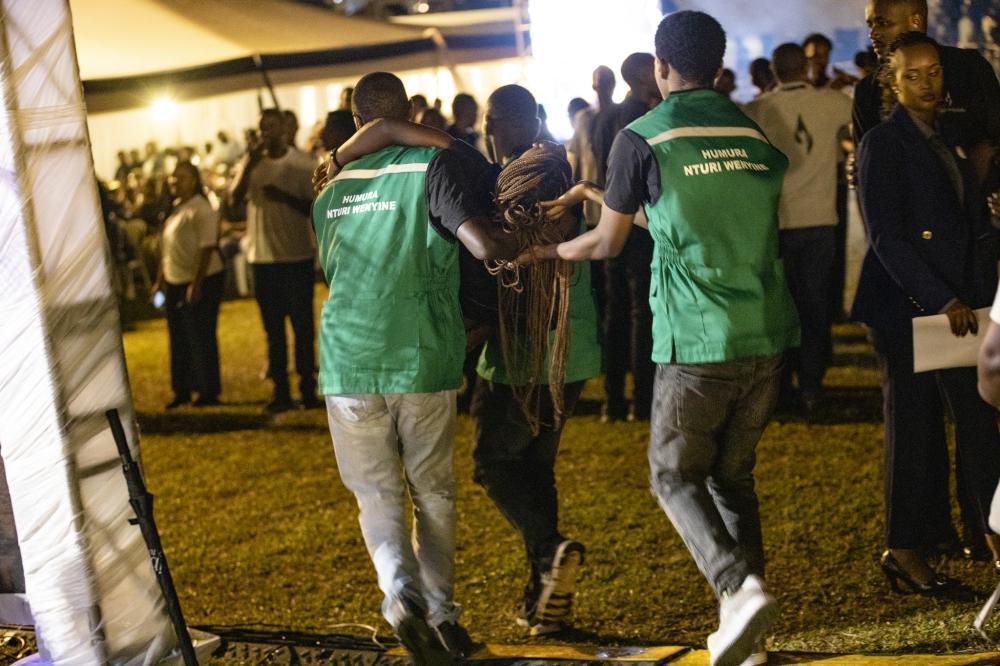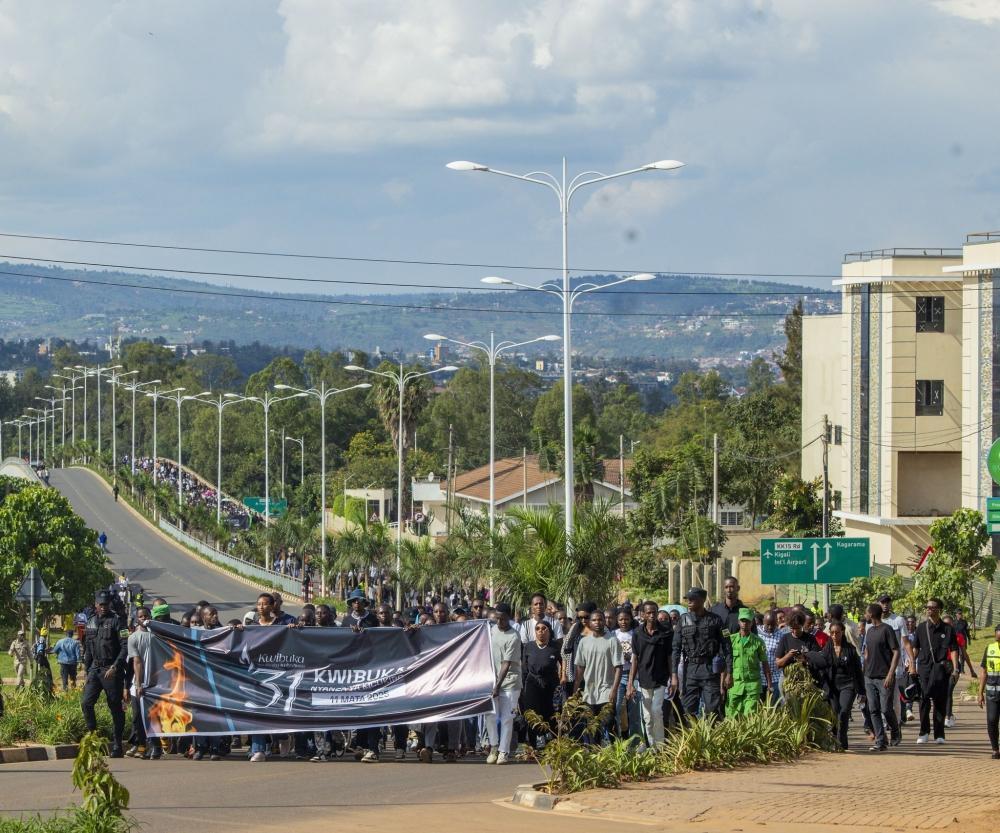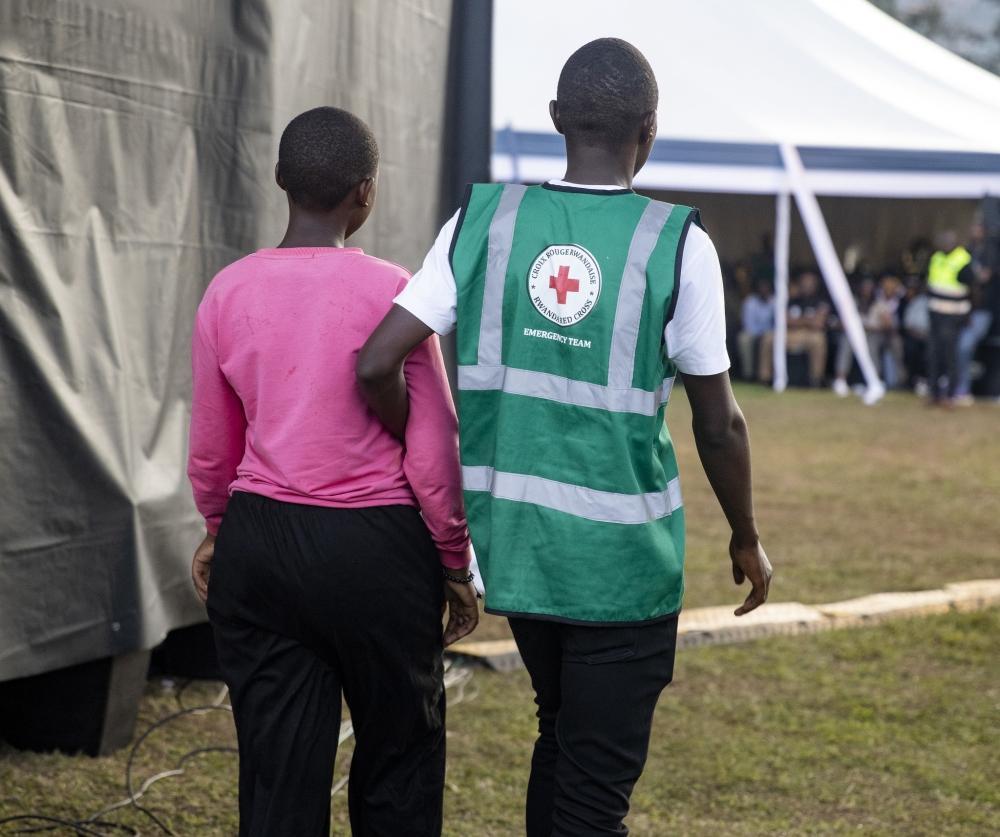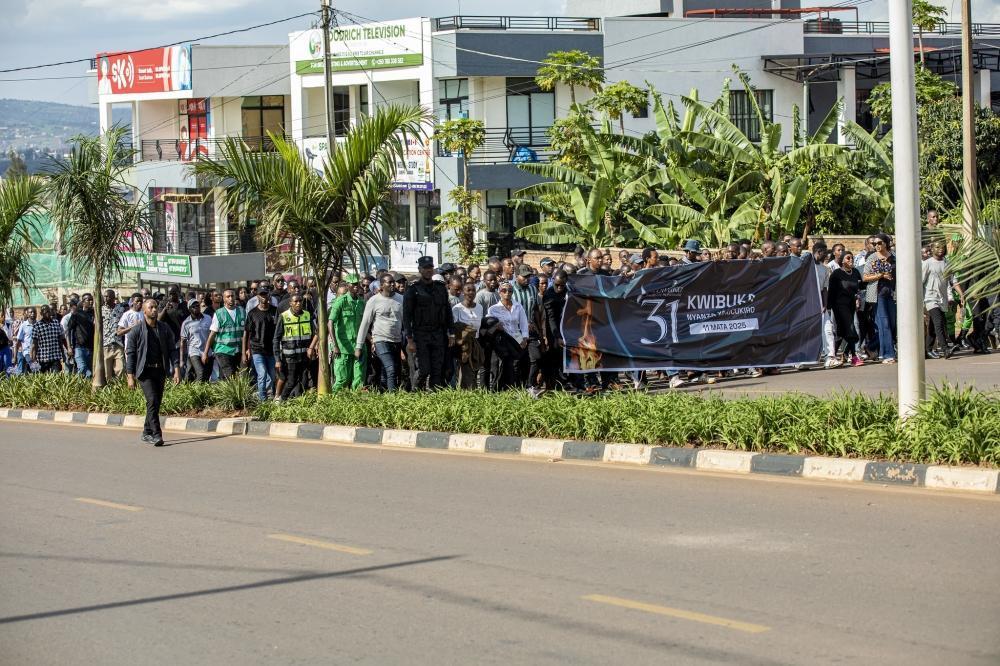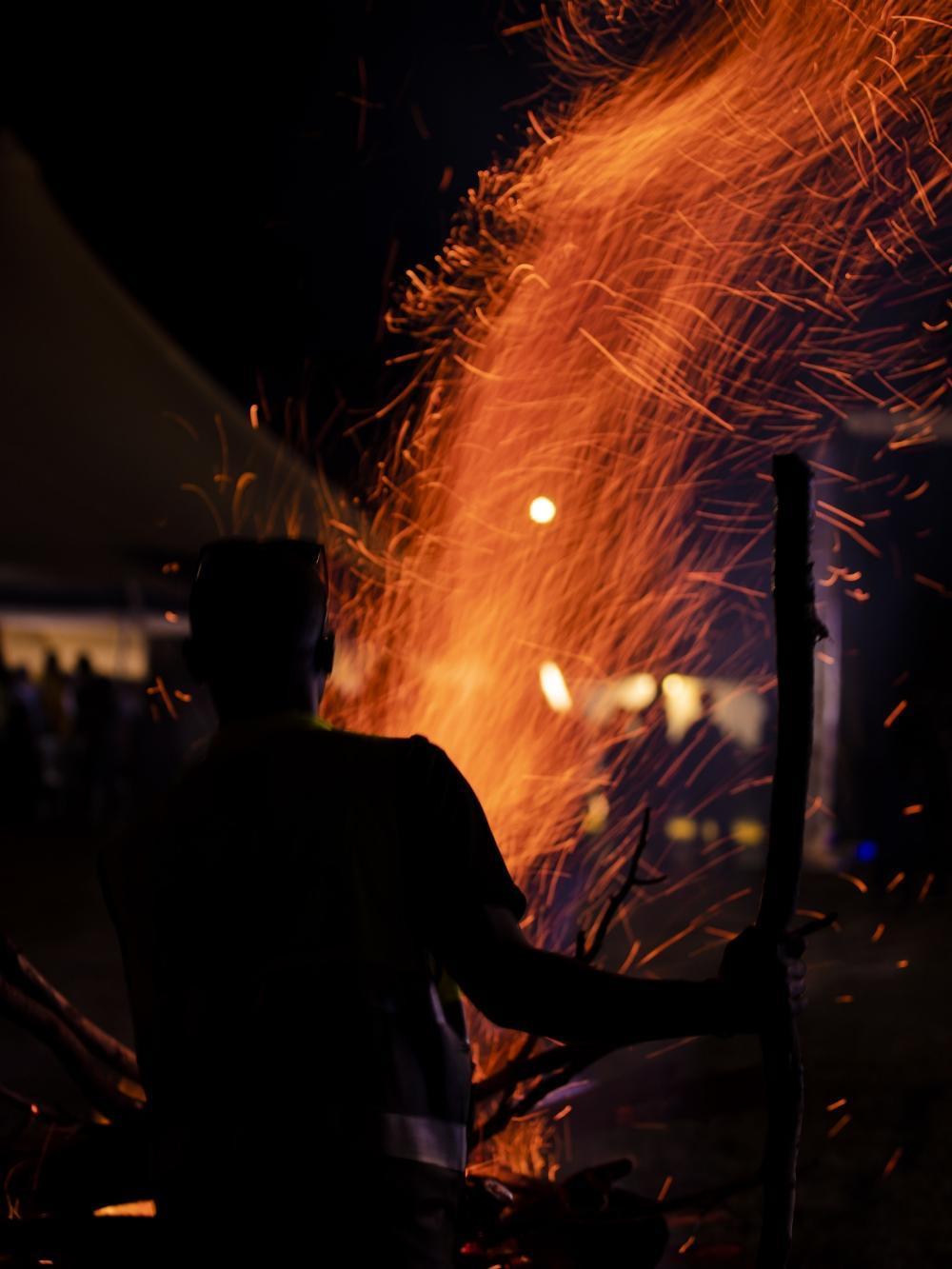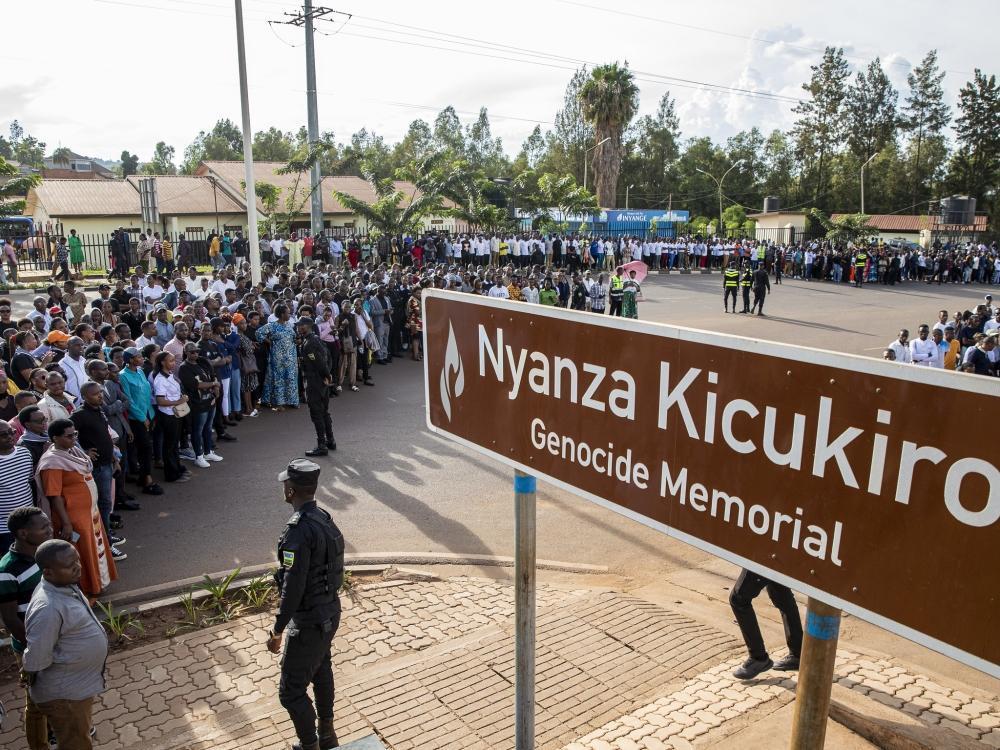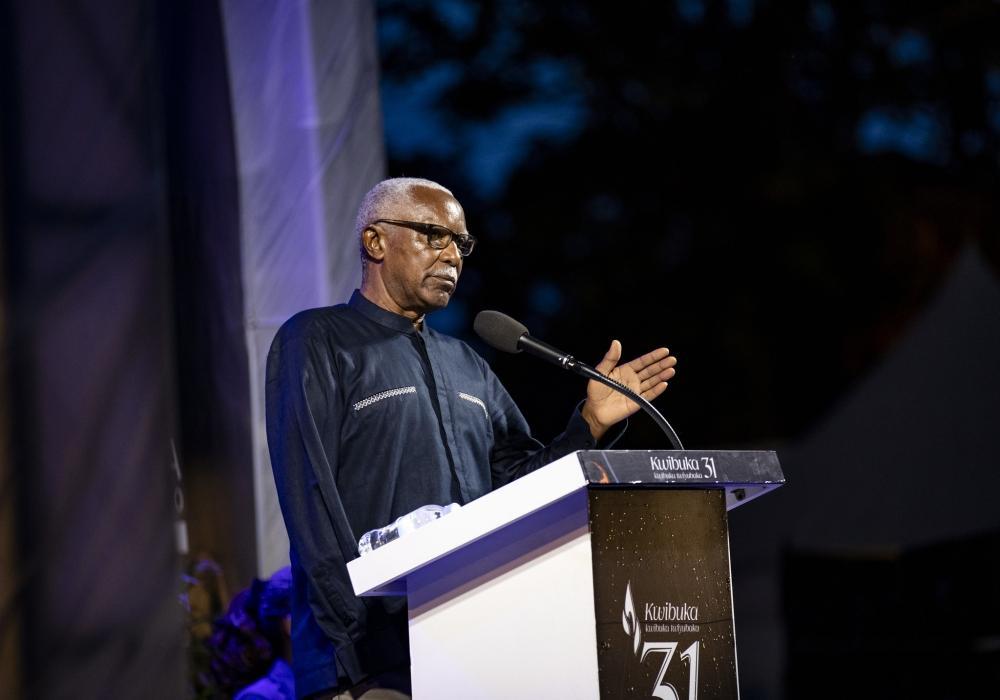
Africa-Press – Rwanda. Venuste Karasira, 73, carries memories from the 1994 Genocide against the Tutsi that still hurt him, but like other survivors, he chooses to live. Born in Kabagari Sector, in Ruhango District, Karasira was in his hometown, on April 6, 1994, helping his mother. That evening, he returned to his home in Kigali’s Kicukiro District—unaware that his life was about to change forever.
“I was born in Kabagari, but we lived in Niboye-Kicukiro. That evening, I, as was habit, returned home early,” he recalled. “We were used to the tension, but that night, it reached another level.”
Since 1990, Karasira’s family had abandoned their bedrooms for the corridor, fearing night attacks.
“We were bombed through our windows several times. So, we made a sleeping schedule—my wife would rest early, and I’d stay up till midnight or 1 a.m., and then switch with her.”
However, on the night of April 6, Karasira felt unusually exhausted.
He asked his wife if he could go to bed early, promising he would soon be up and let her sleep. A hail of bullets and the sound of chaos outside broke that promise.
“It was different that night,” he said. “I turned on the radio and learned that President Habyarimana’s plane had crashed. I told my wife, and she said, ‘Turashize [we are finished].’ I didn’t say much more, but that one word captured everything I felt.”
That night, sleep was impossible. Karasira stayed glued to the radio. The following day, April 7, the tension escalated. While listening to the news, he overheard Interahamwe militiamen shouting outside: “Let’s go to Karasira’s place. He’s a cockroach.”
Even though they were calling for his death, they were still afraid of him.
“I went out, and they fled. I went back inside and told my wife and children to leave everything. We had to flee immediately.”
Karasira knew that Belgian UN peacekeepers were stationed at the ETO technical school in Kicukiro. Though it was just 800 meters from his house, it took him and his family over two hours to get there.
“It was raining,” he said. “That rain saved us. It slowed the killers down and allowed us to hide between banana trees before moving again.”
On April 8, they finally arrived at ETO, which was already overcrowded with hundreds other families seeking protection. “We thought it would just be for a short time. We believed that, at least at first.”
As conditions worsened, the community at ETO organized themselves. Committees were formed, young men dug makeshift toilets, and a group was assigned to speak with the Belgian troops. Karasira was among the latter. He vividly remembers what transpired on April 10, something many people might not know.
“We begged the soldiers to contact Inkotanyi (RPF),” he said. “We’d heard that they had reached Remera. We knew they could save us. However, the soldiers laughed and said, ‘That’s not why we are here.’ That’s when we knew—we were truly on our own.”
The final betrayal came on April 11.
“At noon, we saw the Belgian troops packing up their things,” he said. “Before that, Colonel Rusatira and Kicukiro’s mayor, Evariste Gasamagera—someone I had gone to school with, in Byimana, before I was expelled in 1973—had come. When we asked the soldiers what they were doing there, they told us gendarmes would protect us. But we had fled from those very same gendarmes.”
Some people tried to block the Belgian soldiers from leaving by laying down in front of their trucks. The Belgians fired warning shots and drove off. A French vehicle assisted in their exit.
“That moment was like someone turning off the lights,” he said.
“The Interahamwe and soldiers came almost immediately. They rounded us up and forced us to march, passing my burning house along the way. My child asked why our home was on fire.”
The refugees were taken to the Sonatube area of Kicukiro where the killers held a meeting. A short while later, they were marched again to Nyanza-Kicukiro.
“They ordered anyone with a Hutu ID to step forward. One person did, but this person looked like a Tutsi, and was killed on the spot,” Karasira recalled.
“That’s when we knew death was certain. One of my friends asked if I was ready for death. I told him, ‘No. I’m scared.’”
What followed was a massacre Karasira struggles to describe.
“They started ‘the work’—that’s what they called the killing. I will not say how they did it. God will judge them,” he said. “But many people were killed. Some of us survived with wounds, amputations… It’s hard to say how we made it out.”
Karasira was severely injured, his arm broken. He survived by pretending to be dead—lying under bodies until the killers left.
“They thought I wasn’t breathing,” he said. “The night saved us. Interahamwe left, afraid that Inkotanyi might attack in the dark.”
He remembers women begging the killers to “finish them off” to escape their pain. “There was a pool of blood. Those of us who survived were covered in it. Maybe that’s what saved us, too.”
On April 12, RPF/A forces arrived.
“They [RPF/A rebels] were on their way to Rebero. They found us, treated our wounds, and took us with them. That’s the day we came back to life.”
For Karasira, and other survivors of the Nyanza-Kicukiro massacre, April 12 is more than just a date.
“It is our birthday,” he said.
“Every year, we celebrate life on that day. This year marks our 31st birthday. You’re all invited.”
Though his home was burned, Karasira rebuilt and still lives there today.
He speaks with strength but also with the weight of distressing memories.
The commemoration event started from former ETO Kicukiro, where participants engage in a Walk to Remember. Courtesy
Thousands of Kigali residents turned up to remember the victims of the Genocide that were killed on April 11 at Nyanza-Kicukiro.
Volunteers help a trauma victim during the commemoration at Nyanza-Kicukiro.
For More News And Analysis About Rwanda Follow Africa-Press

